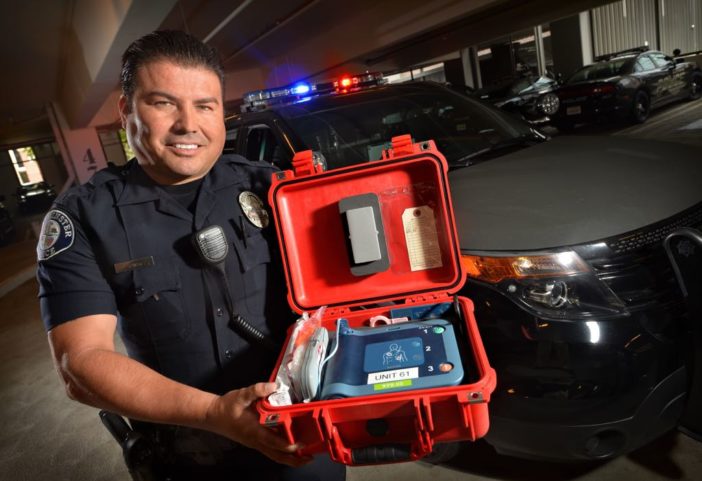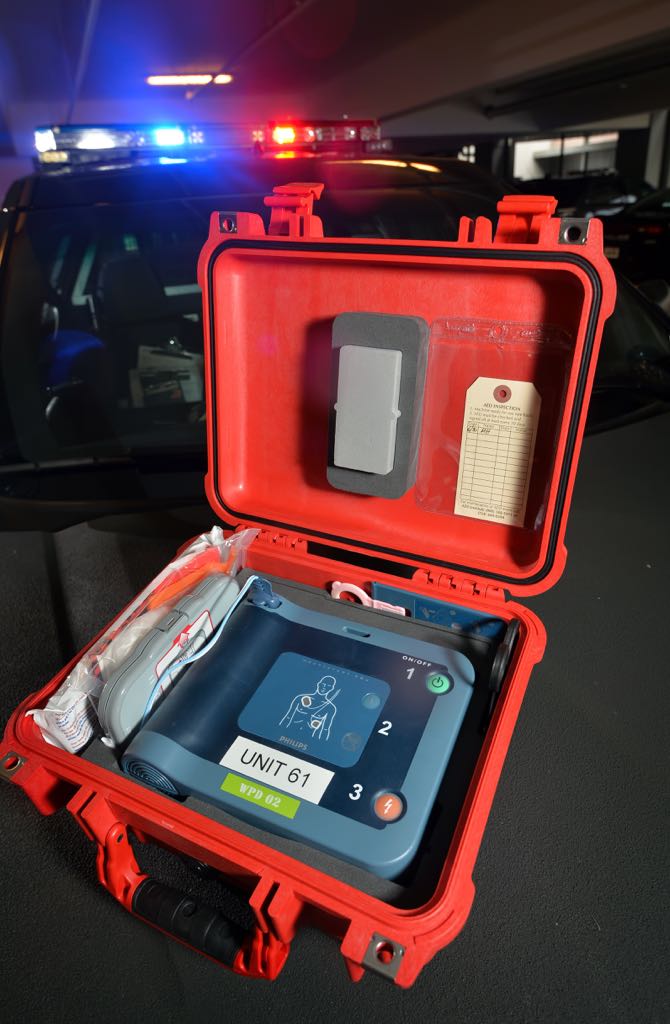It happens often.
A call for medical aid comes in — someone is suffering cardiac arrest, is not breathing or has collapsed — and police are first on the scene.
“Over the past several years, we’ve seen an uptick to our responses to (medical aid calls) and we’re getting to critical medical scenes quicker than the fire department or paramedics,” said Cmdr. Cameron Knauerhaze.
Westminster police officers now have a tool to help them save lives in those crucial first minutes when the heart stops beating the way it should.
The city this month outfit its 33 police patrol cars with Automated External Defibrillators. Knauerhaze said the $1,500 devices were largely offset by asset forfeiture funds.
Westminster joins a handful of Orange County agencies, including La Habra, the Orange County Sheriff’s Department, Brea, Newport Beach and Irvine, that have equipped patrol cars with AEDs.
“We’ve experienced several incidents where officers have used CPR and been able to save a life over the past couple of years,” Knauerhaze said. “That’s why we think this tool can be that much more effective in saving somebody’s life.”
A man who collapsed at a laundromat and a man suffering from a drug overdose were among the CPR saves in 2014.
According to the American Heart Association, sudden cardiac arrest affects about 383,000 people outside of hospitals every year.
The condition, which is often confused with a heart attack, happens when the heart suddenly stops beating and erratically quivers, preventing blood flow to the brain.
Those who suffer sudden cardiac arrest often lose consciousness and collapse.
According to the American Heart Association, first responders have a five-minute window from collapse to first shock to save a life.
For every minute that passes without a heartbeat, the survival rate drops by about 10 percent, the Association reported.
The electric shock delivered by an AED helps recalibrate the heart so it can return to its normal rhythm.
AEDs also store critical information so when the patient arrives at the hospital the physician can learn how may electrical shocks were delivered, as well as the patient’s vitals during the incident.
Knauerhaze said every Westminster officer is trained on how to use the devices.
The department is collaborating with City Manager Eddie Manfro to next add devices at City Hall, the Senior Center and Council Chambers.
“If officers encounter somebody who needs CPR, they’ll be using this,” Knauerhaze said. “The AEDs will be one more tool that will ensure our services are effective and hopefully we’re able to save a life.”
 Behind the Badge
Behind the Badge




